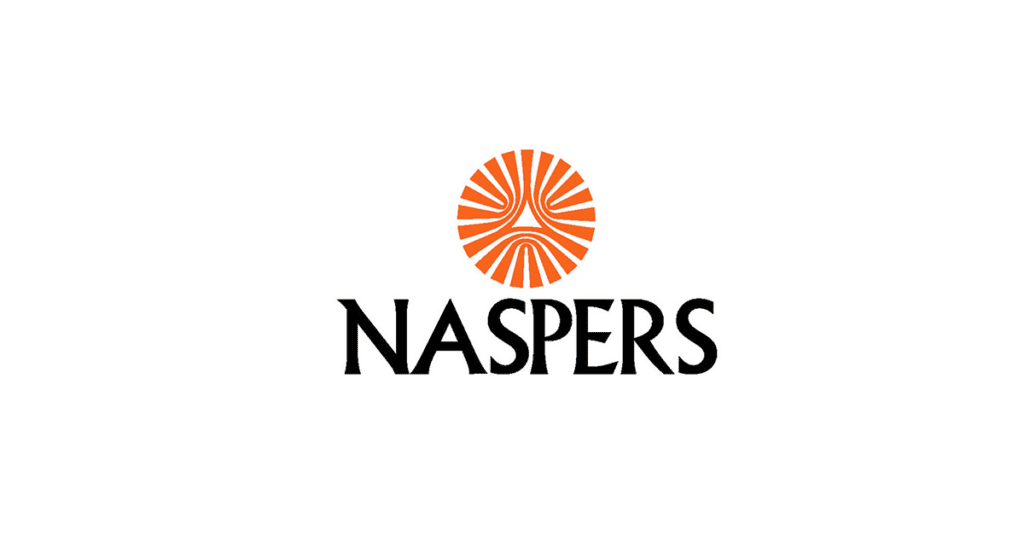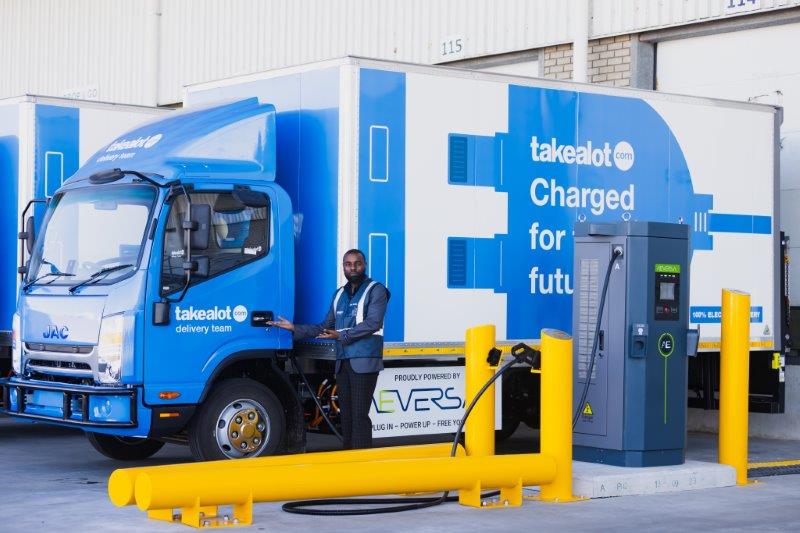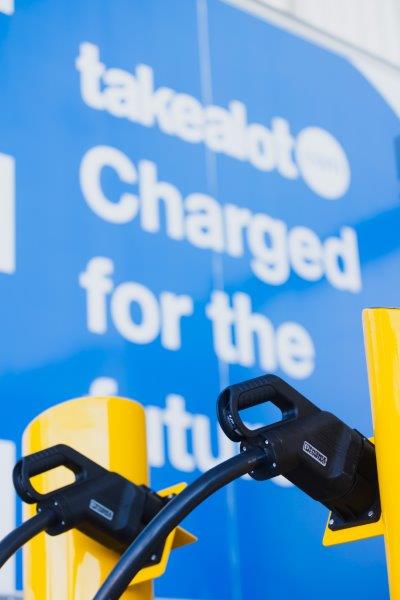Takealot’s fleet management costs are looking a little bit sunnier after the company added 10 electric vehicles to its fleet

Takealot’s fleet management costs are looking a little bit sunnier after the company added 10 electric vehicles to its fleet, marking a positive step towards greater efficiency and sustainability for South Africa’s leading e-commerce platform.

The company saw an average 12.5% saving in fleet management costs over six months through running the fleet of electric delivery vehicles in Johannesburg. The South African-born global technology company Naspers owns Takealot.
Takealot’s move away from petrol and diesel-powered vehicles is one of the ways in which Naspers is crafting a more sustainable future for itself and South Africa.
Naspers is one of more than 100 companies that contributed to the South African private sector’s Voluntary National Review (VNR) of its progress towards attaining the United Nations Sustainable Development Goals (SDGs) by 2030. The private sector review forms a significant contribution to South Africa’s national VNR report for the United Nations High-level Political Forum on Sustainable Development, which the Presidency is to deliver to the UN in July 2025.
Naspers joined the Global Compact Network South Africa (GCNSA) in 2021 and Naspers CEO Phuthi Mahanyele-Dabengwa has served as a GCNSA board director since 2022. The GCNSA works to scale and accelerate collective business impact on South African society, through the SDGs and by upholding the Ten Principles of the UN Global Compact.
Electrifying Takealot’s fleet has social, economic and environmental benefits, including improving the air quality where electric fleets operate because the vehicles do not burn petrol or diesel – both fossil fuels – and promoting environmentally friendly practices.

Mastering last-mile deliveries is at the heart of Takealot’s food-delivery and online retail businesses. Given these businesses’ growing success, managing the impact of these deliveries in terms of air pollution and greenhouse gas emissions is a priority. Naspers’ research shows that global last-mile delivery demand is projected to increase 78% between 2020 and 2030. This would mean a 36% rise in the number of delivery vehicles in the world’s top 100 cities and, if we do not intervene, 32% growth in greenhouse emissions.
Naspers’s report on scaling zero-carbon deliveries of food, groceries and parcels, Electrifying Progress, examines the barriers to and enablers of scaling electric-vehicle adoption in last-mile deliveries. This can yield substantial economic savings, as electric vehicles have reduced per-kilometre consumption, lower operational costs, and offer protection against volatile fuel prices.
While for now South Africa’s power grid is predominantly reliant on coal, another fossil fuel, as the country’s grid becomes increasingly reliant on renewable energy, the environmental benefit of the switch to electric vehicles will increase through lower greenhouse gas emissions from the internal combustion engines that drive petrol and diesel vehicles. Renewable energy’s contribution to South Africa’s energy supply has increased from around zero in 2013 to around 8.8% in 2023/24, according to research by Stellenbosch University.
This pilot project is still being analysed for its full benefits, but already Takealot is exploring adding to its electric vehicle fleet. “Being responsible corporate citizens is important to us, and this initiative reflects our commitment to sustainability and South Africa’s future,” says Naspers global ESG and sustainability manager Ronell Govender.
Bringing in electric vehicles aligns Naspers with SDG 9, which calls on the world to “build resilient infrastructure, promote inclusive and sustainable industrialisation and foster innovation”.
Running an electric fleet in Johannesburg has seen the company add charging stations at its distribution centres across the city, meaning it has already built resilient infrastructure. Also, electric vehicles are improving almost daily as engineers innovate to make them more efficient and their batteries longer lasting.
The Takealot electric vehicle project also links Naspers with SDG 12 – “ensure sustainable consumption and production patterns”.
To meet the projected rapid growth in global demand for last-mile delivery, it is also estimated that between 2020 and 2030 there will be need for 36% growth in the number of delivery vehicles making their way across the world’s top 100 cities, pushing up delivery vehicles’ emission of greenhouse gases by 32% if companies do not switch to electric vehicles, says Prajna Khanna, Naspers’ global head of sustainability.
The switch to electric vehicles also aligns Naspers with SDG 13, “climate action”, helping it and South Africa reduce their greenhouse gas emissions.

The electric fleet is managed in collaboration with renewable energy company Aeversa and lease vehicle supplier Avis.
“As the world of sustainability continues to evolve, we will evolve with it. This exciting collaboration marks an important step for us as a consciously innovative business in South Africa,” says Takealot CEO Frederik Zietsman.
A key highlight of this partnership is that Aeversa has harnessed the potential of the JAC Motors N75 EV truck’s 200km range per charge, allowing Takealot’s delivery vehicles to cover more than 400km a day by ensuring drivers have access to strategically placed charging stations. The trucks are charged at Takealot’s well-placed distribution centres during power provider Eskom’s off-peak hours, saving the company on electricity charges.
Takealot’s switch to electric delivery vehicles is part of its efforts to pave the way towards a more sustainable and environmentally responsible future for South Africa, which is one of the worlds’ top 20 greenhouse gas-emitting nations.
One of the best arguments for fleet electrification is the expected 5% to 10% decrease in operational cost per kilometre by 2050.
On the road to more responsible last-mile delivery, Takealot has retrained 30 of its drivers in electric vehicle battery management and charging techniques.
Naspers, through Takealot in South Africa and other companies across the world, is leading by example. Despite electric vehicles’ benefits, adoption has been slow, says Khanna. She attributes this to the higher upfront costs involved in purchasing electric vehicles when compared to those with internal combustion engines, and a lack of infrastructure required for electric vehicles and general public acceptance.
“Achieving electrification at scale demands a collaborative effort within the ecosystem and the implementation of interconnected strategies,” she says.
Says GCNSA’s Executive Director, Dr Achieng Ojwang, “We have been enlivened by this climate change action project from Naspers, through Takealot. It’s only through deliberate and bold steps on climate action that we can make meaningful progress. We applaud Takealot and Naspers for leading by example.

